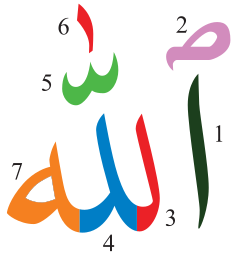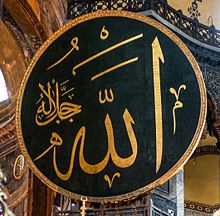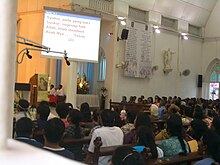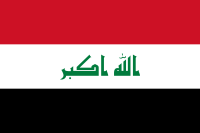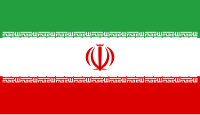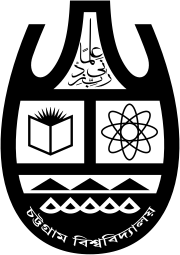Youtube Videos Share By, Welftion
Playlist
সমস্ত প্লে করুন Welftionar ওয়েলফশনার
কালিমা, নামাজ, দোয়া ওয়েলফশন তোমার আমার সংগঠন || We Welftion Your My Association. জীবন - মৃত্যু - জীবনকেমন হবে আপনার মৃত্যু? জীবনের যে বাস্তবতার ব্যাপারে বিশ্বাসী, অবিশ্বাসী নির্বিশেষে প্রতিটি মানুষ নিশ্চিত তা হচ্ছে মৃত্যু। মৃত্যু নিয়ে আমাদের অনেক প্রশ্ন। কেমন হবে মৃত্যুবরণ করার অভিজ্ঞতা? আমাদের কাছের মানুষেরা যারা ইন্তেকাল করেছেন, তাদের অভিজ্ঞতাগুলো কেমন ছিল? আল্লাহ তা’আলার অশেষ রহমত, এই নিশ্চিত গন্তব্যের চিত্র তিনি আমাদের কাছ থেকে লুকিয়ে রাখেন নি, বরং তার রাসুল (সঃ) এর মাধ্যমে আমাদের এই বিষয় নিয়ে অনেক কিছু জানিয়েছেন, যেন আমরা সঠিক প্রস্ততি নিতে পারি। https://youtube.com/playlist?list=PLWWRU0cUBCkCNNBImygZVK6nzSsn9kPo2 ওয়েলফশন অনুসন্ধানী কল্যাণকামী দল. #ছোটছোটপরিবর্তন https://www.youtube.com/watch?v=AazVq_sAVSQ&list=PLsSAbv4JvBpwEhIc_TlUFdB7PLPNGifRe Welftion https://www.youtube.com/watch?v=f74nV31QXK4&list=PLrEnZj_8pcluLIl0V0JxYBE8pzkXA4FOu কুরআন তেলাওয়াত শুনা একটি গুরুত্বপূর্ণ বিষয়। হাদীসে এসেছে, عَنْ عَبْدِ اللهِ رَضِيَ اللهُ عَنْهُ قَالَ قَالَ لِي النَّبِيُّ صَلَّى اللهُ عَلَيْهِ وَسَلَّمَ «اقْرَأْ عَلَيَّ الْقُرْآنَ قُلْتُ آقْرَأُ عَلَيْكَ وَعَلَيْكَ أُنْزِلَ قَالَ إِنِّي أُحِبُّ أَنْ أَسْمَعَهُ مِنْ غَيْرِي» আবদুল্লাহ ইবনে মাসউদ রাদি আল্লাহু আনহু বলেন, রাসূলুল্লাহ সল্লাল্লাহু আলাইহি ওয়াসাল্লাম আমাকে বললেন, ‘তুমি আমাকে কুরআন পড়ে শুনাও, আমি বললাম, আপনার উপর কুরআন অবতীর্ণ হয়েছে, আমি আপনাকে কীভাবে কুরআন শুনাবো? তখন তিনি বললেন, আমি অপরের নিকট থেকে কুরআন শুনতে ভালবাসি’ -[সহীহ বুখারী : ৫০৪৯]। সূরা আরাফের ২০৪ নম্বর আয়াতে বলা হয়েছে, ‘যখন কোরআন তোমাদের সামনে পড়া হয়, তা মনোযোগ সহকারে শোনো এবং নীরব থাকো, হয়তো তোমাদের প্রতিও রহমত বর্ষিত হবে।’ কোরআনে কারিমের তেলাওয়াত স্বতন্ত্র ইবাদত হিসেবে গণ্য। আল্লাহতায়ালার পক্ষ থেকে সর্বশ্রেষ্ঠ উপহার হচ্ছে কোরআনে কারিম।মুসলমানদের জন্য দুনিয়ার বুকে সবচেয়ে বড় নেয়ামত হচ্ছে কোরআন। কুরআন মাজীদে নির্দেশ দেয়া হয়েছে এভাবে, ﴿ٱتۡلُ مَآ أُوحِيَ إِلَيۡكَ مِنَ ٱلۡكِتَٰبِ﴾ [العنكبوت: ٤٥] ‘তোমার প্রতি যে কিতাব ওহী করা হয়েছে, তা থেকে তেলাওয়াত কর’ -[সূরাহ আনকাবুত : ৪৫]। নবী করিম (সা.) বলেছেন, তোমরা কোরআন তেলাওয়াত করো। কেননা কোরআন কেয়ামতের দিন তার তেলাওয়াতকারীদের জন্য সুপারিশকারী হিসেবে আগমন করবে। (মুসলিম : ৮০৪)। উসমান ইবনে আফফান (রা.) থেকে বর্ণিত, তিনি বলেন, রাসুলুল্লাহ (সা.) বলেছেন, তোমাদের মধ্যে সর্বশ্রেষ্ঠ ব্যক্তি সে-ই যে নিজে কোরআন শেখে ও অপরকে শেখায়। (বোখারি : ৫০২৭)। যে ব্যক্তি যত বেশি কোরআন তেলাওয়াত করবেন তার তত বেশি সওয়াব জমা হতে থাকবে। হজরত রাসুলে করিম (সা.) বলেন, যে ব্যক্তি কোরআনের একটি হরফ পাঠ করবে, তাকে একটি নেকি প্রদান করা হবে। প্রতিটি নেকি হবে ১০টি নেকির সমান। আমি বলি না যে, আলিফ-লাম-মিম একটি হরফ। বরং আলিফ একটি হরফ, লাম একটি হরফ এবং মিম একটি হরফ। (সুনানে তিরমিজি)। একজন কোরআনের হাফেজ ব্যক্তি নামাজের জামাতেও ইমাম হওয়ার অধিক উপযুক্ত। যেমনটি হাদিসে এসেছে যে, অধিক শুদ্ধ তেলাওয়াতকারী ব্যক্তিই জামাতের ইমামতির হকদার। (সহিহ মুসলিম)। আল্লাহ রাব্বুল আলামীন ইরশাদ করেন- নিশ্চয় আমি জ্বীন এবং মানুষকে আমার ইবাদতের জন্য সৃষ্টি করেছি।(সুরা যারিয়াত -৫৬) নামায মুমিনের উপর ওয়াক্ত মুতাবিক ফরজ করা হয়েছে। (সুরা নিসা – ১০৩) আল্লাহ্ রব্বুল আলামীন নামাজ প্রতিটি মুসলিম ভাই এর জন্য ফরজ করেছেন । কিন্তু দুর্ভাগ্য আমরা অনেকে নামাজের প্রয়োজনীয় ছোট সূরা গুলো জানি না। আসুন আমরা সে গুলো সুন্দর ভাবে শিখে নি। তোমরা নামাযকে হেফাজত কর বিশেষ করে মধ্যবর্তীর নামাজ তথা আছরের নামায এবং আল্লাহর জন্য একনিষ্টতার মাধ্যমে দাঁড়িয়ে যাও। ( সুরা বাকারা- ২৩৮ ) নিশ্চয় সালাত মানুষকে অশ্লীল ও খারাপ কাজ থেকে বিরত রাখে ( সুরা আনকাবুত – ৪৫) A documentary video series highlighting the overall experience of The Quran Intensive produced by Salam Studios. \










 listen)) is the common Arabic word for God. In the English language, the word generally refers to God in Islam.[3][4][5] The word is thought to be derived by contraction from al-ilāh, which means "the god", and is linguistically related to the Aramaic words Elah and ܐܲܠܵܗܵܐ (ʼAlâhâ) and the Hebrew word El (Elohim) for God.[6][7]
listen)) is the common Arabic word for God. In the English language, the word generally refers to God in Islam.[3][4][5] The word is thought to be derived by contraction from al-ilāh, which means "the god", and is linguistically related to the Aramaic words Elah and ܐܲܠܵܗܵܐ (ʼAlâhâ) and the Hebrew word El (Elohim) for God.[6][7]